Donald Trump: “A vote that I will win is the Hispanic vote”
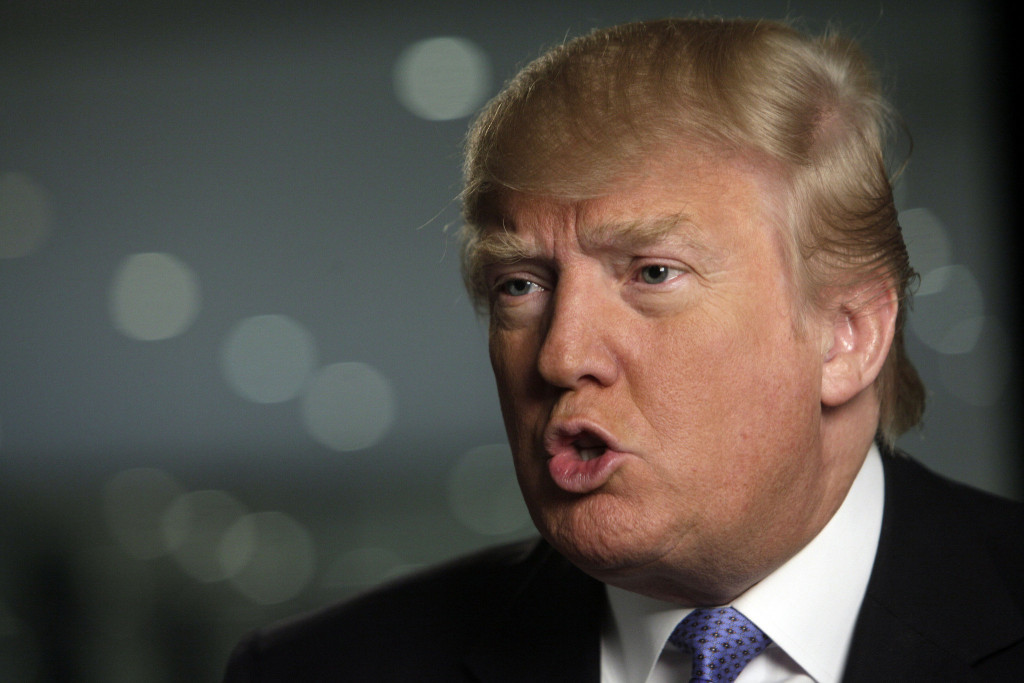
Republican presidential candidate Donald Trump says he’s confident he could win substantial Hispanic votes if he’s the party’s nominee. Brushing aside the controversy over labeling Mexican immigrants as “rapists” and “criminals,” Trump argues “the Hispanics love me.” He tells MSNBC: “I employ thousands of Hispanics.” Trump also says he’s not worried about any lack of support in the Latino community and argues he hasn’t been hurt politically by his calls for clamping down on illegal immigration. Trump has refused to soften his stand on immigration, even after a plea by Republican National Committee Chairman Reince Priebus (ryns PREE’-bus) that he tone down his remarks. The GOP fared poorly with the Hispanic community in the 2012 presidential election. Republished with permission of The Associated Press.
As Republican infighting grows, donors call for calm
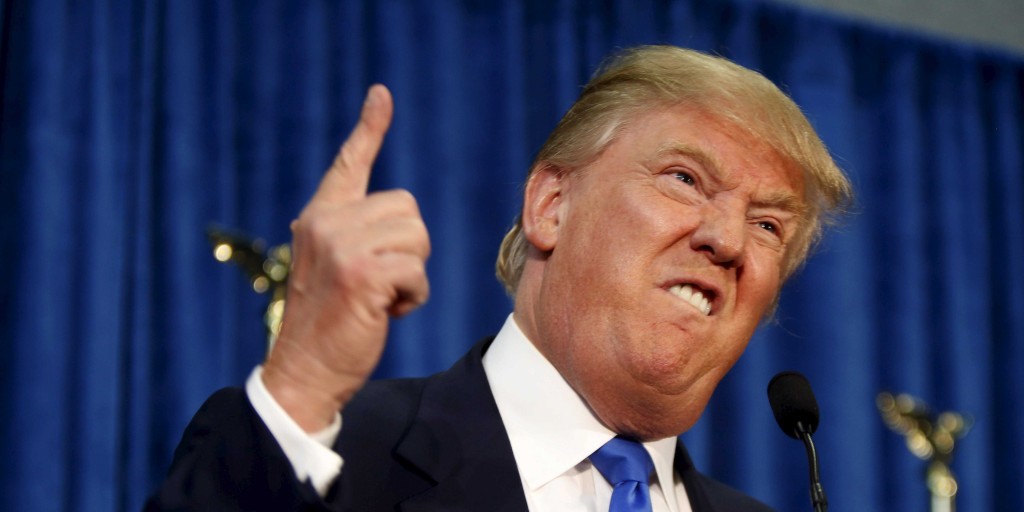
Worried about “Republican on Republican violence,” top party donors are taking action, with one firing off a letter calling for more civility and another seeking to block businessman Donald Trump from the debate stage altogether. Foster Friess, a Wyoming-based investor and one of the party’s top 20 donors in the last presidential contest, issued a letter to 16 White House prospects and the Republican National Committee late last week calling for candidates to stay on the “civility reservation.” “Our candidates will benefit if they all submit to Ronald Reagan‘s 11th Commandment, `Thou shall not speak ill of a fellow Republican,’” Friess wrote in a copy of the letter sent to Republican National Committee chairman Reince Priebus and obtained by The Associated Press. In the dispatch, Friess cites the backing of casino magnate Sheldon Adelson and Chicago Cubs co-owner Todd Ricketts. “Would you join the effort to inspire a more civil way of making their points?” Friess wrote. “If they drift off the `civility reservation,’ let’s all immediately communicate that to them.” The call for calm comes as the sprawling Republican field shows signs it could tip into a bare-knuckles struggle for the nomination — a scenario that the party’s elite donors see as a distressing echo of four years ago. New Jersey Gov. Chris Christie on Monday charged that Republicans don’t need Texas Sen. Ted Cruz‘s “lectures.” Wisconsin Gov. Scott Walker repeatedly dismisses Republicans in Congress as doing little. And Kentucky Sen. Rand Paul regularly jabs his Republican opponents by name. Yet no candidate has injected more provocation into the 2016 Republican presidential primary than Trump. While few party officials see the reality television star as a credible candidate, he has lashed out at a growing number of Republican critics who have condemned his recent description of Mexican immigrants as criminals and rapists. Trump over the weekend posted a message from another user on his Twitter account charging that former Florida Gov. Jeb Bush “has to like the Mexican illegals because of his wife,” Columba, who was born in Mexico. Campaigning in New Hampshire over the weekend, Bush said he “absolutely” took the remark personally. Trump has not apologized, but spokeswoman Hope Hicks on Monday said, “This was a retweet from somebody else” about a news story. But Trump stood firm on his comments about immigrants Monday, saying “the Mexican government is forcing their most unwanted people into the United States,” and “criminals, drug dealers, rapists” are among them. He said “many fabulous people” come from Mexico and the U.S. is better for them, but this country is “a dumping ground for Mexico.” Republican donor John Jordan said Monday that GOP leaders should take steps to block Trump’s access to the first presidential debate in early August. Organizers at Fox News, backed by the Republican National Committee, have released guidelines allowing the top 10 candidates in national polling to participate. Trump would qualify under the current terms, while contenders such as Ohio’s two-term Gov. John Kasich would not. “Someone in the party ought to start some sort of petition saying, `If Trump’s going to be on the stage, I’m not going to be on there with him,’” Jordan told AP on Monday. “I’m toying with the idea of it.” “It’s something I feel strongly about as somebody who not only cares about the Republican Party, but also Latinos,” Jordan said. Even as the other candidates say they’re trying to avoid intraparty backbiting, however, they can’t seem to avoid it. In an interview Sunday on NBC’s Meet the Press, Cruz refused to condemn Trump’s comments, saying he’s not going to perpetrate “Republican-on-Republican violence.” Christie, who entered the presidential race last week, wasn’t having it. “I find it ironic, right, that Ted Cruz is giving lectures on Republican-on-Republican violence,” Christie said on Fox News, accusing the Texan of sponsoring hardball ads against Republican Sen. Lamar Alexander in 2014 primaries. “I mean, all due respect, I don’t need to be lectured by Ted Cruz.” The Republican National Committee has dramatically reduced the number of primary debates before the 2016 contest largely to avoid the kind of attacks that bloodied their 2012 nominee, Mitt Romney. As the last GOP nomination heated up in January 2012, Romney and former House Speaker Newt Gingrich got particularly nasty. Gingrich joined Obama supporters in attacking Romney’s business background, calling him a “vulture capitalist.” Donors remember those exchanges well and fear a repeat of primary vitriol would lead to another general election loss. “Ninety-nine percent of leading donors saw the candidates carve each other up in the 2012 primaries and come out weaker for it and are determined not to let that happen again,” said Fred Malek, who has helped raise money for GOP presidential candidates for four decades. Responding to Friess’ letter, former Arkansas Gov. Mike Huckabee wrote he plans on “becoming the nominee by playing a better game, not by breaking the legs of my rivals.” “I hope that we don’t commit fratricide again as a party,” Huckabee wrote, according to a copy of his response obtained by AP. Republished with permission of The Associated Press.
10’s a crowd? GOP prepares for double digits on debate stage
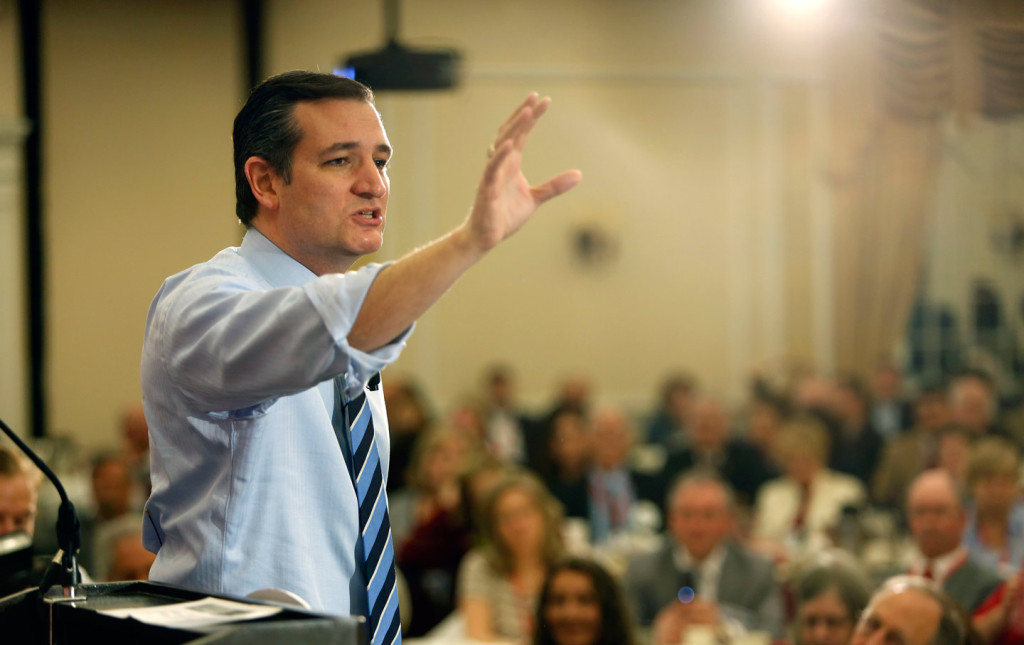
The first Republican presidential debate will feature no fewer than 10 candidates. That’s according to guidelines released Wednesday by debate hosts Fox News and Facebook, which offer the first clues as to how the GOP will handle its largest presidential class in recent memory. Party officials have been working privately in recent weeks to prevent its first debate in August from becoming a nationally televised circus, while lesser-known candidates have been lobbying for access. Only announced candidates will be allowed to participate, according to the new guidelines. Participation will be limited to those who “place in the top 10 of an average of the five most recent national polls, as recognized by Fox News.” More than 10 candidates would be allowed on the debate stage in the event of a tie. At least 15 high-profile contenders are expected to compete for a spot, a group likely to include eight current or former governors, four senators, two accomplished business executives and a renowned neurosurgeon. There will be winners and losers under the new system. The winners could include the likes of Donald Trump, a businessman and reality television star who has already launched a presidential exploratory committee. While some party officials were reluctant to grant him a spot on stage should he run, he has placed within the top 10 in most recent polls. The losers could include statewide office holders who have struggled to gain national traction. Those on the bubble include former Texas Gov. Rick Perry, Louisiana Gov. Bobby Jindal, 2012 presidential candidate Rick Santorum, Ohio Gov. John Kasich, and former technology executive Carly Fiorina, the only woman in the Republican field. Their roads to the White House would be even steeper without the opportunity to stand out in a nationally televised debate. “I’ll look forward to making the cut and making my case to GOP voters on Aug. 6,” Fiorina wrote on Twitter. Several candidates have lobbied Republican officials in recent weeks to consider creative options, including debate “heats” featuring seven or eight candidates at a time on consecutive nights. CNN, which plans to hold a GOP debate in September, said Wednesday it will divide its event into two parts: one featuring the 10 highest-polling candidates, the other including “candidates who meet the minimum threshold of 1 percent in public polling but are ranked outside the top 10.” Republican National Committee Chairman Reince Priebus said, “We support and respect the decision CNN has made.” For its August debate, Fox News also promised to provide “additional coverage and air time … to those candidates who do not place in the top 10,” according to Michael Clemente, the network’s executive vice president of news editorial. There will be 12 GOP presidential debates between August and March, with the first scheduled for Aug. 6 in Cleveland. The moderators for the first meeting include Fox anchors Bret Baier, Megyn Kelly and Chris Wallace. Republished with permission of The Associated Press.
Rick Perry to say June 4 if he’ll run again for President
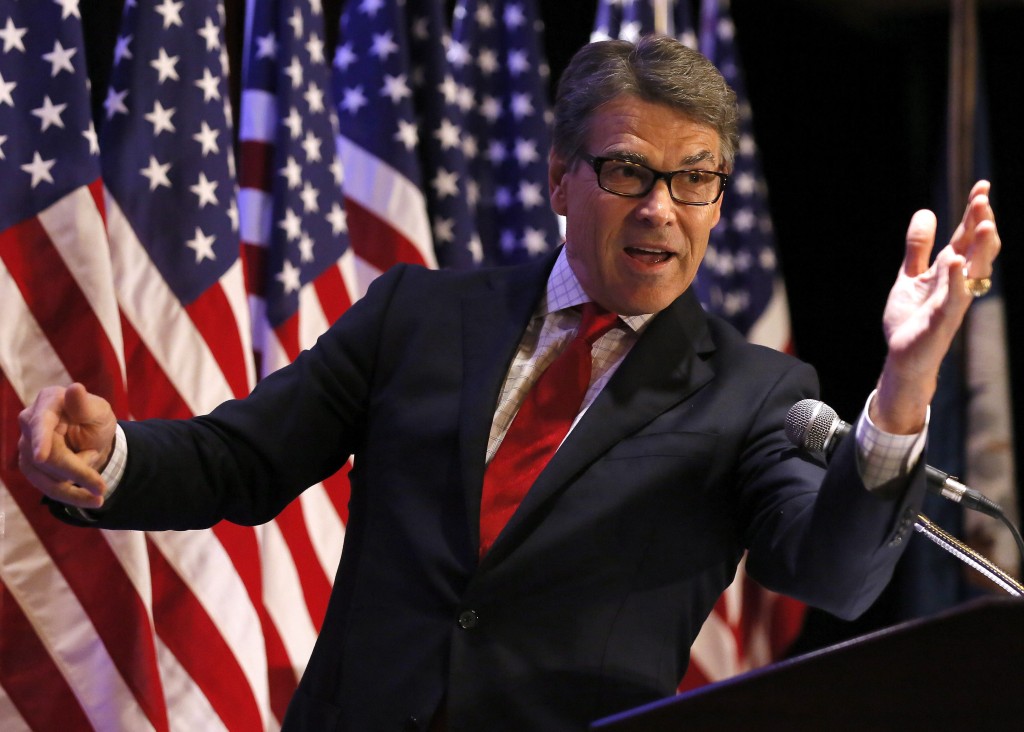
Former Texas Gov. Rick Perry will say whether he is running for president at an announcement next month in Dallas. The longest-serving governor in Texas history has spent months traveling in the early voting states of Iowa, New Hampshire and South Carolina as he gears up for a second White House bid. Perry’s wife, Anita, tweeted the first word of Perry’s plan for an announcement and then emailed supporters about it. “America is facing a time of testing, and it’s clear that we need principled leadership and an optimistic vision to see us through after eight years of the Obama Administration,” she wrote. A spokesman said Friday Perry is not ready to declare his candidacy. “He’s announcing his intentions on June 4,” Perry spokesman Travis Considine said in Washington, where he was traveling with Perry. “He has not said what he’ll be announcing. You’ll have to stay tuned.” Asked if he knew whether Perry had made up his mind, senior adviser Jeff Miller said, “I do know that,” but refused to give any details. When Perry got into the 2012 presidential race, he announced his campaign in South Carolina. He entered as a potential front-runner but flamed out after a series of blunders, including an infamous “oops” moment when Perry couldn’t remember, during a GOP debate, the name of the third Cabinet agency he wanted to eliminate. Perry left office in January and is facing a criminal abuse-of-power indictment in Austin for threatening in 2012 to veto state funding for public corruption prosecutors and then doing so. Besides maintaining his travel schedule, Perry has been studying with policy experts in an effort to make a stronger impression than he did in his first presidential run. Republished with permission of the Associated Press.
GOP wrestling with too many ’16 prospects for a TV debate
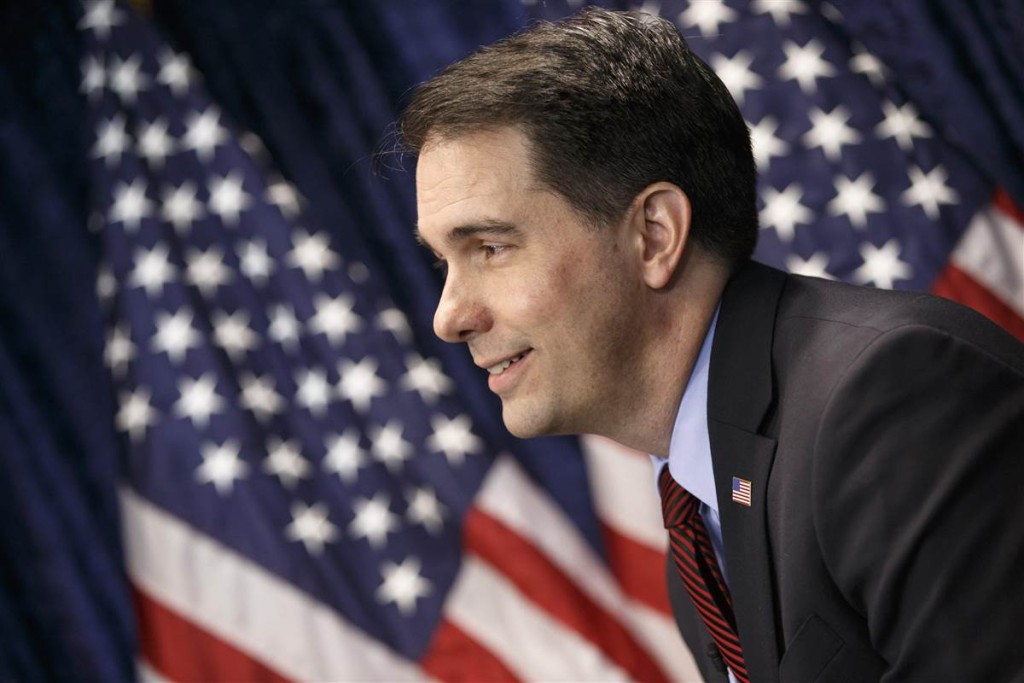
Never have more than 10 candidates taken the stage for a televised Republican presidential debate. Wish the GOP luck in trying to keep it that way. With the party’s first debate set for August, Republicans must decide to either allow what could become a nationally televised circus act, or figure out how to fairly whittle down a field likely to include eight current or former governors, four senators, two accomplished business executives and a renowned neurosurgeon. More than a half-dozen contenders have already begun to lobby party officials for access in a debate season that could be unlike any other. The GOP has an advantage in drawing “one of the most diverse, broad” fields it’s ever had, said Saul Anuzis, a former Republican National Committee member from Michigan. “But what if by the first debate we still have 10 to 15 viable candidates? That’s going to be a zoo.” Part of the problem is basic math. In a 90-minute debate featuring so many candidates, there would be only enough time for opening and closing statements and two, maybe three questions — with no time left over for the interaction between candidates that makes for an actual debate. Thus, a process filled with opportunity as the GOP seeks to highlight its diverse crop of candidates, but also fraught with risk as some of the traditional ways of making the cut could exclude some who have won statewide office, not to mention the only woman and African-American in the field. “This is the political equivalent of breaking an atom open,” said Republican National Committee strategist Sean Spicer. Worried they might be left out, several candidates are encouraging the RNC to consider creative options, including debate “heats.” Brad Todd, an adviser to the super PAC backing Louisiana Gov. Bobby Jindal, is pushing RNC Chairman Reince Priebus to hold two 90-minute debates on consecutive nights featuring different groups of candidates. Rick Santorum, the runner-up in the 2012 Republican primary contest, floated the same idea as he visited with RNC officials in Arizona this week. “I am concerned about potentially a large field and any attempt to try to squeeze that field down to the preferred group,” Santorum said. “If you drew straws to the two different debates, I guarantee you you’d have good people in both debates that would draw audiences.” Others are privately pressing party leaders to allow for the broadest participation possible in the first debate, set for this August in Cleveland. Businessman and TV personality Donald Trump is among those whose advisers have spoken directly with Priebus in recent days. “Selfishly, the networks would put me on because I get great ratings,” said Trump, who has launched a presidential exploratory committee. “We spoke to Reince today and they want me on.” Yet Trump’s place on the debate stage is by no means assured. There is broad agreement that participants must be announced candidates and reach an undetermined threshold in national polling, with final criteria to be approved by the television networks partnering with the party to host 12 debates between August and March. There are currently eight contenders who poll consistently at or above 5 percent: Former Florida Gov. Jeb Bush, Wisconsin Gov. Scott Walker, former Arkansas Gov. Mike Huckabee, Florida Sen. Marco Rubio, Kentucky Sen. Rand Paul, New Jersey Gov. Chris Christie, Texas Sen. Ted Cruz and retired neurosurgeon Ben Carson. While Trump typically polls close to 5 percent when included in surveys, there are several high-profile prospects who do not. Among them: former Pennsylvania Sen. Santorum, former Texas Gov. Rick Perry, Ohio Gov. John Kasich, South Carolina Sen. Lindsey Graham, Louisiana Gov. Bobby Jindal and former technology executive Carly Fiorina. Organizers are also considering factors such as campaign and super PAC fundraising, experience in office, polling in the early voting states and the desire to have as diverse a field on stage as possible. Spicer said Friday the RNC opposes any consideration of race or sex as criteria, but some party officials are particularly focused on elevating Fiorina, the only woman in the Republican field. The overwhelming front-runner on the Democratic side is Hillary Rodham Clinton. “Sex should not be one of the criteria that the committee uses, and I’m quite confident I’ll be on the debate stage,” Fiorina, who is drawing roughly 1 percent in national polls, told reporters this week during the RNC’s spring meeting in Phoenix. Kasich supporters, meanwhile, are incredulous that a two-term governor from a must-win swing state could be excluded. “If they don’t put him in the debate, there’s going to be some explaining to do,” said Ohio GOP chairman Matt Borges. Republished with permission of the Associated Press.
GOP chairman Reince Priebus: Campaign prep just as important as nominee
Republican National Committee Chairman Reince Priebus cautioned GOP faithful on Friday that they won’t recapture the White House if the party gets too obsessed with choosing its nominee while Democrats continue to outpace Republicans on campaign tactics. “We have become a candidate-crazy party to the detriment of all the mechanics,” Priebus told hundreds of GOP donors and activists at a South Carolina party dinner. Describing the 2012 nomination fight as a “total disaster” and a “traveling circus,” Priebus said the Republican National Committee has learned its lesson. The party is spending millions of dollars this year to build a database that will help identify millions of likely Republican voters — an exercise unabashedly modeled after the success of President Barack Obama‘s two national victories. “Now we’re the ones buying the data licenses so that we know who to target and how to target,” Priebus said. “Somebody has to get that done.” The national GOP also condensed the primary calendar and reduced the number of debates, with the party taking a stronger role in choosing the format and moderators. Now, Priebus said, it’s Republican voters’ responsibility to avoid a “slice-and-dice festival” that he said left the 2012 Republican nominee, Mitt Romney, in a weak position as he tried to unseat Obama. The chairman’s warning comes less than nine months before the Iowa caucuses and New Hampshire primary start the nominating calendar. South Carolina follows a few weeks later; the winner of the GOP primary here captured every Republican presidential nomination from 1980 to 2008. (Newt Gingrich won South Carolina in 2012.) Home-state Sen. Lindsey Graham, who has been traveling in Iowa and New Hampshire, suggested Friday that he was close to launching a formal campaign as he shared the stage with Texas Sen. Ted Cruz, a declared candidate, and potential candidates Rick Santorum and Rick Perry. “As to what happens in the coming months, get ready,” Graham said. “Get ready for a debate that’s been long overdue within the party.” He later added: “To Iowa and New Hampshire, hello. To South Carolina, you have my heart.” Graham would be considered a long-shot, but his aides and backers believe his foreign policy experience in the Senate, his outspoken advocacy for an aggressive U.S. international presence and his blistering critiques of Obama’s international policy can propel him in a crowded field, amid widespread voter concern about security issues. He hit those themes in his brief remarks. “To our enemies, get ready, because there’s a new way of business coming,” he said. “To our friends, get ready for the America you used to know.” The would-be 2016 rivals avoided any intra-party barbs at the GOP affair. “I don’t think there’s anybody in this country that knows foreign policy better than Lindsey Graham,” said Perry, the former Texas governor. Graham praised Santorum, a former Pennsylvania senator, as a champion opponent of abortion. Cruz hailed the “incredible array of talent we have in 2016,” then used the praise to mock the Democratic presidential field, which officially consists of Hillary Rodham Clinton and Bernie Sanders, a Vermont senator who has identified himself as socialist. The Democrats’ primary, Cruz said, for now “consists of a wild-eyed socialist with dangerous views on foreign policy … and Bernie Sanders.” South Carolina Republicans will reconvene Saturday, with former Florida Gov. Jeb Bush joining the list of potential candidates taking the stage. The state’s primary was a key victory for Bush’s father, George H.W. Bush, in 1988 and his brother, George W. Bush, in 2000. Republished with permission of The Associated Press. Photo Credit: AP Photo/Susan Walsh, File


